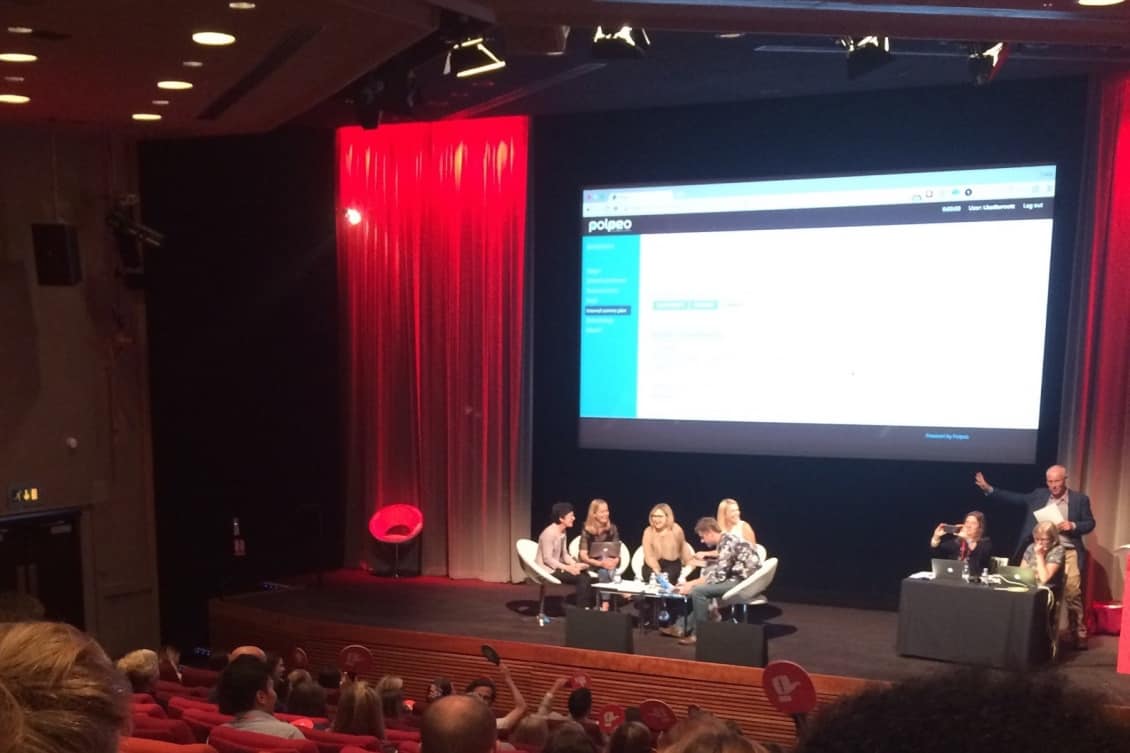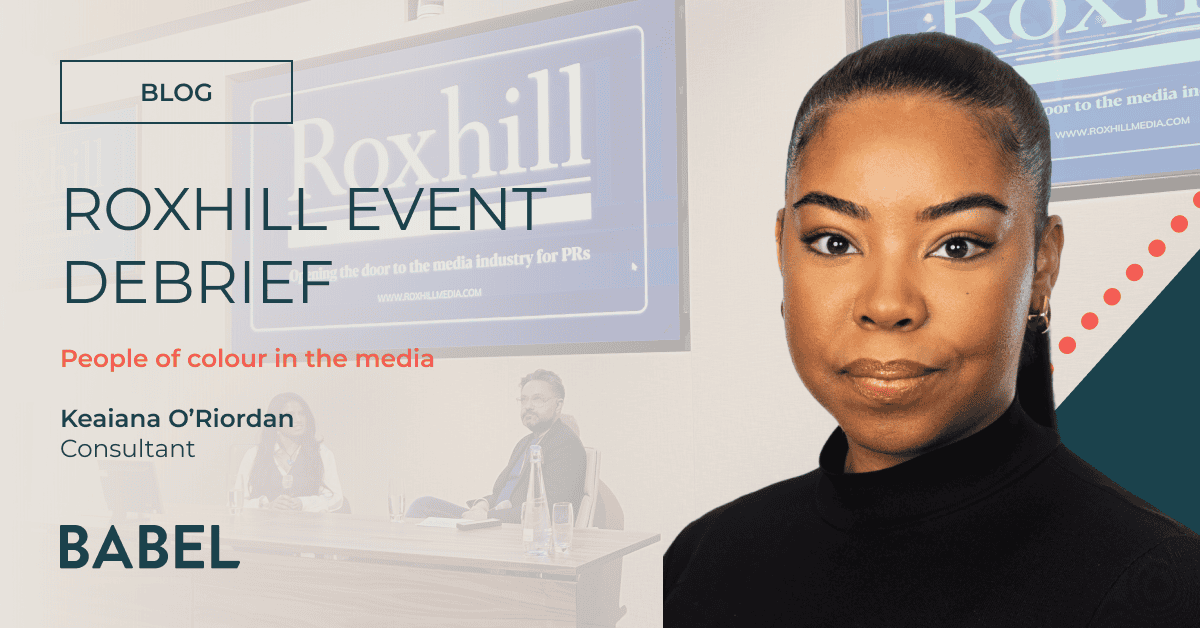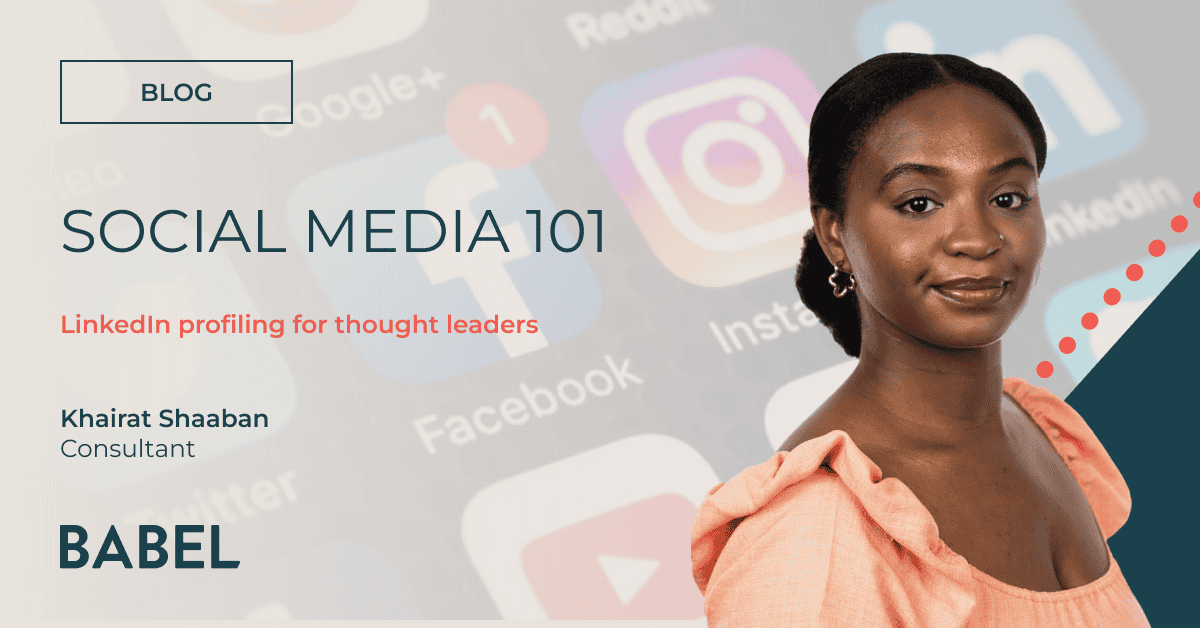
FutureComms16 – what is in store for the PR industry
To celebrate the achievements and diversity of the PR industry, I recently joined around 200 of my industry peers for FutureComms16, hosted at the prestigious BAFTA venue, to discuss communications issues close to our career-hearts.
With ten key sessions taking place throughout the day, FutureComms16 provided great insight into how the communications industry is changing. Topics covered include gender diversity, the rise of social media platforms and, of course, the importance of good influencer relations. So without further ado, here are my top three takeaways from this year’s conference.
- Working with influencers
As a PR, our day-to-day job involves having conversations with a whole host of influencers on behalf of our clients. With this in mind, I found the session on the importance of appropriate content, chaired by Sharon Flaherty (founder of BrandContent), to have particular resonance. Sharon was keen to hammer home the importance of research before reaching out to influencers, which is a sentiment very much shared by Babel.
Whether we’re talking to journalists, bloggers, analysts or industry commentators, having conversations with influencers is an important and large part of job, so ensuring we know who we’re talking to, what they cover and what they are interested in is crucial before that all important first contact is made.
- Buying coverage
Getting influencer engagement right varies across different sectors, but specifically for consumer brand PR, the discussion dipped in and out of the significance of social media and ‘buying’ coverage. A panel of four guest speakers, including a PR account manager, a freelance content writer, a mummy blogger and an analyst, discussed the pros and cons of this approach.
Paying for coverage is a largely alien concept for Babel, as in the world of tech and telecoms we are a lot more focused on securing unpaid editorial opportunities or ‘earned’ media. So it was very interesting to hear differing opinions on the value and role of paid-for opportunities for some PRs.
It was particularly enlightening to hear that in some sectors, unless there is a monetary fee agreed, payment for exposure on an influencer’s platform can range anywhere from a free drink to the product itself. As the mummy blogger on the panel pointed out, promoting a company doesn’t feed her son.
- Personalisation
One pet hate agreed by all influencers at the FutureComms16 event was impersonalised correspondence. In trying to scoop as much coverage as possible, some PRs have been known to use generic emails to target journalists and bloggers they suspect are relevant, but haven’t actually confirmed.
Personalisation is the latest trend emerging from the wider marketing and PR industry, with targeted advertising increasingly becoming part of everyday life. Engaging directly with journalists and bloggers through personalised communications, whether that’s over email, phone or social media, is by far the best way to guarantee acknowledgement from influencers.
Final thoughts
The entire day provided plenty of food for thought, so a few final musings from the event:
The industry lacks collaboration. What would happen if there was a more collaborative approach from PRs and influencers?
Creativity is a currency which should be recognised. How can we encourage more creativity and measure it?
And if there was one thing which was agreed by PRs across the board, it was that the person to invent an automatic coverage clipping tool would be well worth investing in!





